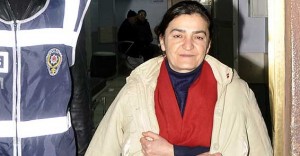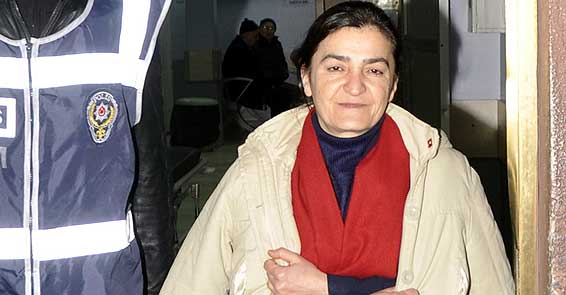 A year and four months in an isolated cell left Turkish journalist Müyesser Yıldız with little to say. “I have trouble speaking, I have been all alone in my cell you see,” said Yıldız, who was recently released by authorities.
A year and four months in an isolated cell left Turkish journalist Müyesser Yıldız with little to say. “I have trouble speaking, I have been all alone in my cell you see,” said Yıldız, who was recently released by authorities.
Charged with formulating and aiding a plot against the Turkish government, the case of journalists at OdaTV captured international attention after the government filed secret charges against them and military personnel almost a year ago.
The journalists were arrested in connection to a government crackdown against a ‘coup’ that shattered the illusion of an ‘open’ Turkey and revealed deep rifts between the state and the press. The headquarters of OdaTV , a website that criticises the government and its policies, were raided by Turkish police in February of 2011. Allegedly, documents were discovered that detailed the existence of a plot conceived by the military, called Sledgehammer, to derail the current civilian government under Prime Minister Recep Tayyip Erdogan and his Justice and Development Party.
The aftermath led to a slew of arrests and detentions of both military and media personnel, of which Yıldız was a victim. She does not know why she was arrested or why she was detained for 16 months. The evidence against her and her colleagues was labelled ‘secret’ and they could not contest the claims. Yıldız’s next hearing is slated for September 14. “I have been begging for justice for months, but apparently we will have to find this ‘illegal organisation’ that we were accused of managing by ourselves,” she told the Turkish Hurriyet Daily News.
Because of Erdogan’s slightly Islamic leanings, Turkey has long been regarded as a successful example of integrating religion into a modern day state. Islamists and Egyptian pundits have touted the Turkish model as an exemplar, despite the state’s affairs being run in a completely secular manner. This idealistic image has been shaken as of late in the wake of the OdaTV case and other instances of the state pressuring media to positively portray them. It may be no coincidence that one of Yıldız’s companions, Nedim Şener had recently authored a book slamming the Turkish police and its complicity with the murder of a Turkish journalist.
Turkey›s crackdown on journalists could also be a response the Kurdistan Workers› Party (PKK), a terrorist organisation that uses violence to express its secessionist views. Clashes have killed tens of thousands of people, civilians and soldiers, rebels and loyalists, since the organisation›s founding in 1984. Several of the journalists behind bars in Turkey are suspected of aiding the PKK.
